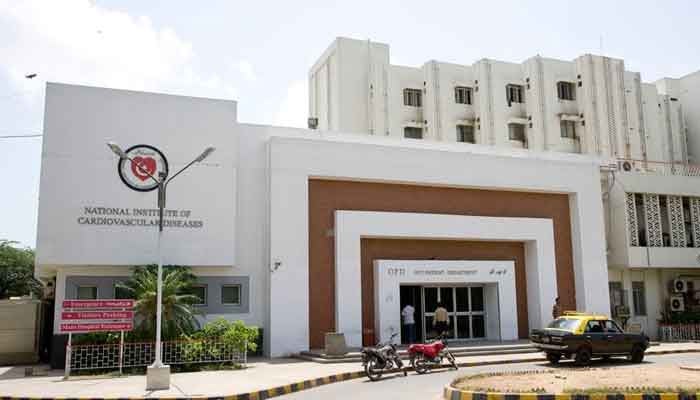Karachi’s leading cardiac hospital, the National Institute of Cardiovascular Diseases (NICVD), is at the center of a major anti-corruption investigation following allegations of financial mismanagement amounting to PKR 40 billion. The Anti-Corruption Establishment (ACE) has initiated an inquiry targeting senior leadership at NICVD for a series of alleged irregularities that span several years.
This investigation has put the spotlight on the governance of one of Pakistan’s largest public-sector health facilities, shaking public confidence in the administration of healthcare funds.
Senior NICVD Officials Under Scrutiny
Six top officials at NICVD, including the Administrator, Chief Financial Officer, Head of Internal Audit, and HR Director, have been issued official notices to appear before the Anti-Corruption Establishment. They are being questioned over a wide range of allegations, including:
- Unjustified and inflated salaries
- Irregular recruitment practices
- Violation of procurement rules
- Non-transparent contracts and tenders
- General misuse of government funds
Authorities have demanded all relevant documentation, financial records, appointment data, and audit reports for the past several fiscal years to support the investigation.
Breakdown of Allegations
The core allegations against NICVD revolve around:
1. Inflated Payroll and Compensation Packages
It has been alleged that multiple staff members, including senior and mid-level employees, received compensation packages well beyond approved government scales. Some staff reportedly received double salaries or benefited from non-disclosed perks and benefits.
2. Procurement and Tender Violations
Supplies and services were reportedly acquired through non-transparent processes, without proper tendering or adherence to procurement laws. This includes medical equipment, service contracts, and vendor payments without formal evaluation.
3. Dubious Hiring Practices
There are reports that numerous individuals were hired on political grounds or without meeting the required criteria. In some cases, positions were allegedly created or filled outside the official HR policies, raising concerns about nepotism and favoritism.
4. Poor Oversight and Lack of Audits
Budgeting inconsistencies and audit irregularities over the years indicate a pattern of poor financial oversight. Annual audits reportedly flagged issues that were never acted upon by internal committees.
Public Outrage and Demands for Transparency
The public and civil society organizations have demanded a full forensic audit of NICVD’s finances. The case has sparked widespread outrage, particularly due to the hospital’s critical role in treating cardiovascular diseases for thousands of low-income and underprivileged patients across Sindh.
Health activists argue that the alleged corruption has direct consequences on patient care, equipment availability, and access to life-saving treatment. There is mounting pressure on provincial authorities to suspend the implicated officials and bring the facts to light.
NICVD’s Response
In its defense, NICVD’s current leadership has claimed that:
- The institution is fully cooperating with investigators.
- The flagged issues mostly stem from older records (dating back as far as 2017–18).
- Many of the discrepancies are the result of procedural gaps, not intentional misconduct.
- All decisions were made in line with the hospital’s expansion plans across Sindh.
However, critics argue that regardless of the timeline, the institution must still be held accountable for any violations of public trust and mismanagement of taxpayer money.
What Happens Next?
As the investigation unfolds, possible outcomes may include:
- Suspension of officials found involved in wrongdoing
- Recovery of embezzled public funds
- Criminal proceedings under anti-corruption laws
- Structural reforms in NICVD’s administrative processes
- Stricter financial oversight mechanisms for all public hospitals in Sindh
This case may also become a precedent-setting moment in Pakistan’s fight against corruption in the healthcare sector.
Conclusion
The PKR 40 billion anti-corruption investigation at NICVD Karachi has uncovered deep concerns about financial governance, transparency, and accountability in public healthcare institutions. As the probe continues, the demand for justice, transparency, and institutional reform grows louder. The final outcome will not only determine the fate of NICVD’s leadership but also send a strong message about the consequences of misusing public health resources.



Comments (0)
No comments yet. Be the first to comment!
Leave a Comment